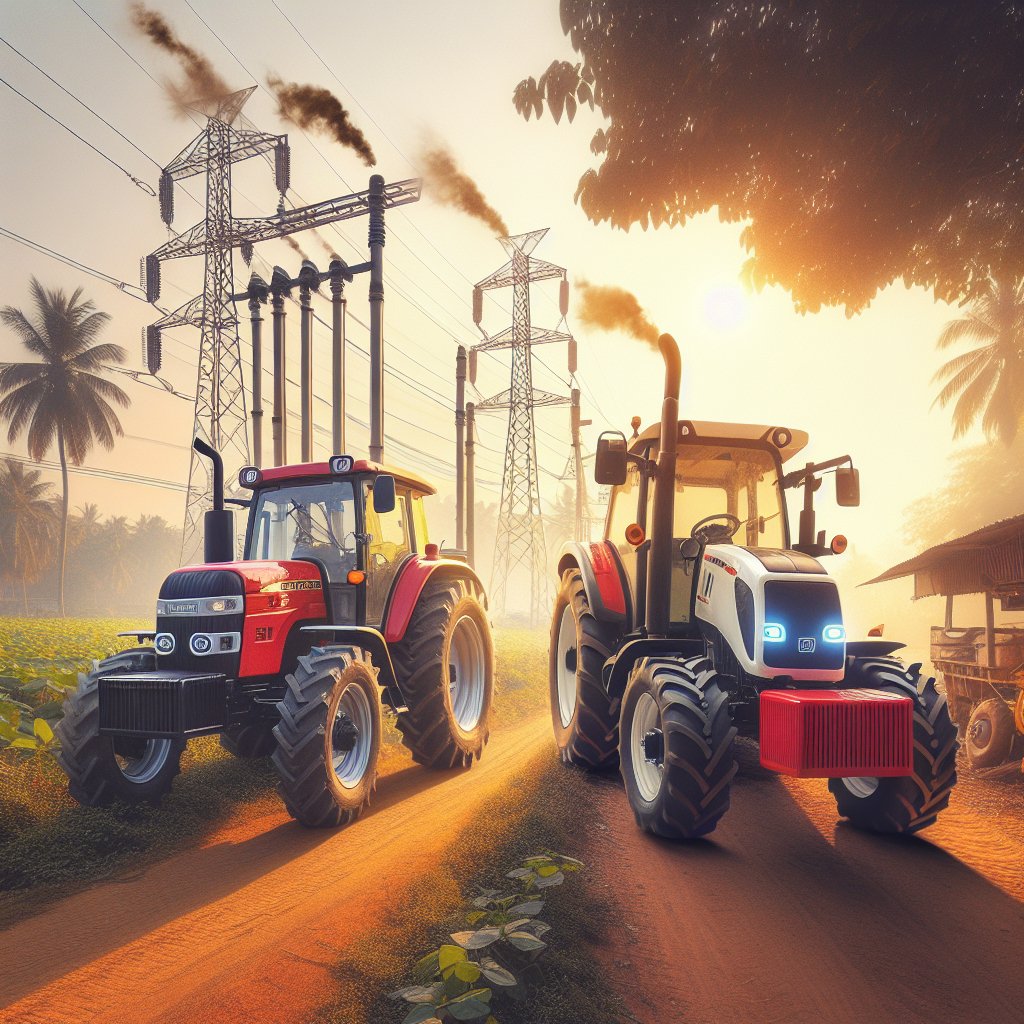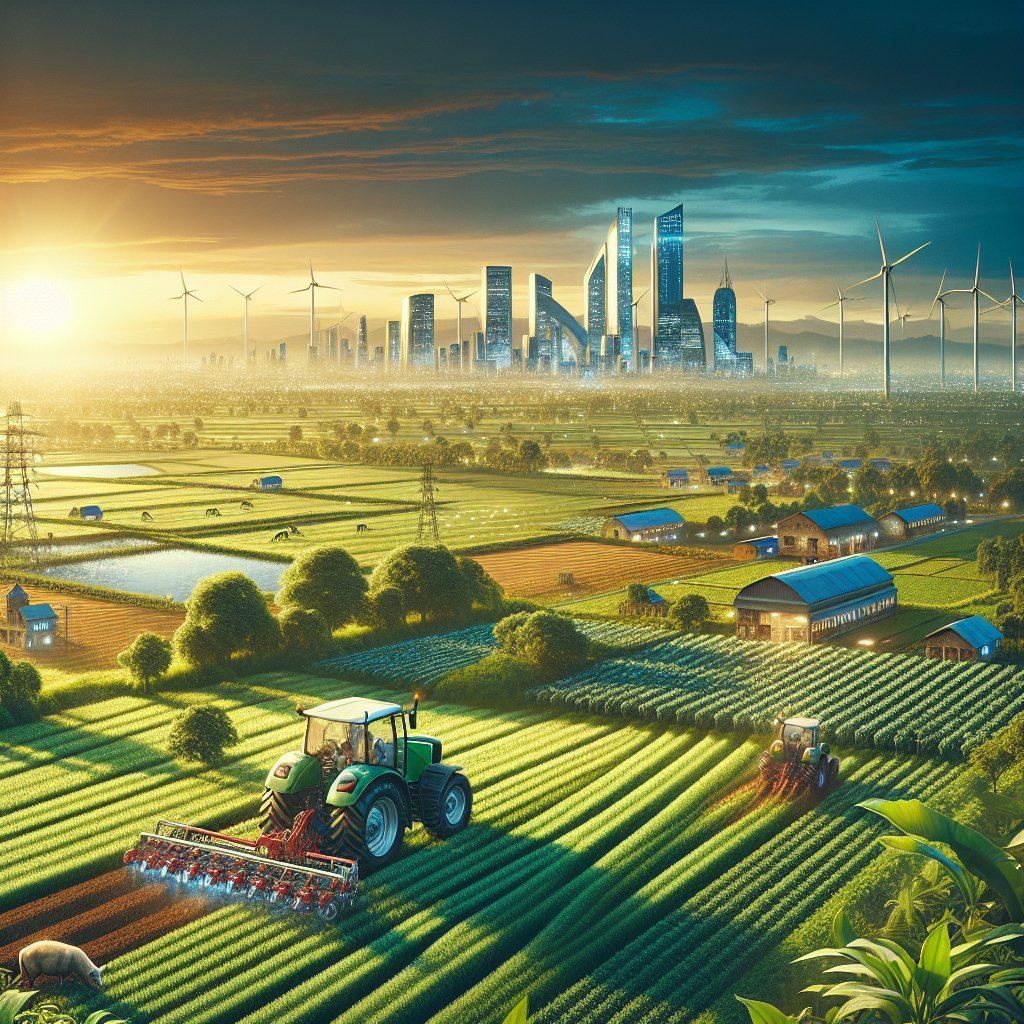The debate between diesel and electric tractors in India has gained significant traction as the agricultural sector seeks more efficient and sustainable solutions. With the increasing focus on reducing carbon emissions and improving operational costs, farmers are now faced with the choice of adopting electric tractors or sticking with traditional diesel models. This article will explore the advantages and disadvantages of both types of tractors, their impact on the environment, and the future of farming in India.
Understanding Diesel Tractors
Diesel tractors have been the backbone of Indian agriculture for decades. Known for their power and reliability, these machines have enabled farmers to perform a variety of tasks, from plowing fields to transporting goods. However, as the world moves towards greener alternatives, it is essential to evaluate the pros and cons of diesel tractors in the current agricultural landscape.
Advantages of Diesel Tractors
- Power and Performance: Diesel tractors are renowned for their high torque and horsepower, making them suitable for heavy-duty tasks. They can handle challenging terrains and are often preferred for large-scale farming operations.
- Fuel Availability: Diesel fuel is widely available across India, making it convenient for farmers to refuel their tractors without significant delays.
- Lower Initial Cost: Generally, diesel tractors have a lower purchase price compared to electric tractors, making them more accessible for small and medium-sized farmers.
- Established Technology: Diesel technology is well-understood, with a vast network of service providers and spare parts available, ensuring that maintenance and repairs are manageable.
Disadvantages of Diesel Tractors
- Environmental Impact: Diesel tractors emit greenhouse gases and pollutants, contributing to air quality issues and climate change. This has led to increasing scrutiny from environmentalists and regulatory bodies.
- Fuel Costs: The fluctuating prices of diesel fuel can significantly impact operational costs for farmers, especially during periods of high fuel prices.
- Noise Pollution: Diesel engines are typically noisier than their electric counterparts, which can be a concern for both farmers and nearby communities.
- Maintenance Costs: While initial costs may be lower, diesel tractors often require more frequent maintenance, which can add to the overall cost of ownership.
The Rise of Electric Tractors
Electric tractors are emerging as a viable alternative to diesel models, driven by advancements in battery technology and a growing emphasis on sustainability. As India grapples with the challenges of climate change and pollution, electric tractors offer a promising solution for the future of agriculture.
Advantages of Electric Tractors
- Environmental Benefits: Electric tractors produce zero emissions during operation, significantly reducing the carbon footprint of farming activities. This aligns with global efforts to combat climate change and promote sustainable practices.
- Lower Operating Costs: The cost of electricity is generally lower than diesel fuel, leading to reduced operational expenses. Additionally, electric tractors have fewer moving parts, resulting in lower maintenance costs over time.
- Quieter Operation: Electric tractors operate quietly, minimizing noise pollution and creating a more pleasant working environment for farmers and nearby residents.
- Technological Advancements: Many electric tractors come equipped with advanced technology, such as GPS and precision farming tools, enhancing productivity and efficiency.
Disadvantages of Electric Tractors
- Higher Initial Investment: The upfront cost of electric tractors can be significantly higher than that of diesel tractors, which may deter some farmers from making the switch.
- Charging Infrastructure: The availability of charging stations is still limited in many rural areas, posing a challenge for farmers who may need to travel long distances to recharge their tractors.
- Battery Life and Range: While battery technology is improving, electric tractors may still have limitations in terms of range and battery life, particularly for extensive farming operations.
- Dependence on Electricity Supply: In regions with unreliable electricity supply, the practicality of electric tractors may be compromised, making diesel a more reliable option.
Comparative Analysis: Diesel vs. Electric Tractors
When comparing diesel and electric tractors, several factors come into play, including cost, environmental impact, and operational efficiency. Understanding these differences can help farmers make informed decisions that align with their needs and values.
Cost Considerations
While diesel tractors may have a lower initial purchase price, the long-term costs associated with fuel and maintenance can add up. In contrast, electric tractors, despite their higher upfront cost, can offer significant savings in fuel and maintenance over time. Farmers must weigh these factors against their financial capabilities and operational needs.
Environmental Impact
The environmental benefits of electric tractors are clear, as they contribute to reduced emissions and a smaller carbon footprint. In contrast, diesel tractors, while powerful, have a more significant negative impact on air quality and climate change. As sustainability becomes a priority for consumers and governments alike, the shift towards electric tractors may become more pronounced.
Operational Efficiency
Diesel tractors excel in power and performance, making them suitable for heavy-duty tasks. However, electric tractors are catching up, with advancements in technology improving their capabilities. Farmers must consider the specific tasks they need to perform and choose the tractor that best meets those requirements.
The Future of Tractors in India
The future of tractors in India is likely to be shaped by a combination of diesel and electric models, as farmers navigate the challenges of modern agriculture. While diesel tractors will continue to play a significant role, the increasing adoption of electric tractors is expected to grow as technology advances and infrastructure improves.
Government Initiatives and Support
The Indian government has recognized the importance of sustainable agriculture and is actively promoting the use of electric vehicles, including tractors. Initiatives such as subsidies, tax incentives, and investment in charging infrastructure are aimed at encouraging farmers to transition to electric models. These efforts will be crucial in determining the pace of adoption in the coming years.
Technological Innovations
As technology continues to evolve, both diesel and electric tractors are likely to benefit from innovations that enhance their performance and efficiency. For electric tractors, advancements in battery technology, charging solutions, and smart farming tools will play a vital role in their adoption. Meanwhile, diesel tractors may see improvements in fuel efficiency and emissions reduction technologies.
Conclusion
The choice between diesel and electric tractors in India is not straightforward, as both options have their advantages and disadvantages. Farmers must consider their specific needs, financial capabilities, and environmental concerns when making this decision. As the agricultural landscape continues to evolve, the integration of electric tractors alongside traditional diesel models may pave the way for a more sustainable and efficient future in Indian agriculture.



